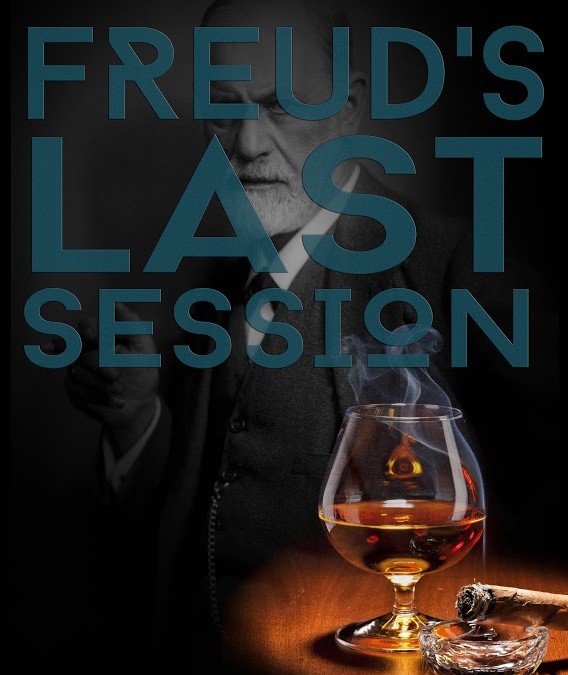While Sigmund Freud and C.S. Lewis can be toted as visionaries of their age, the two barely had a fleeting chance to meet during their respective primes. With little time to debate, two of the greatest philosophical minds get their delayed chance at discourse this coming weekend at Bootless Stageworks.
Freud’s Last Session centers on a hypothetical meeting between legendary psychoanalyst, Dr. Sigmund Freud, and a young, rising Oxford Don, C.S. Lewis, to Frued’s home in London eve of World War II. Freud and Lewis clash about love, sex, the existence of God, and the meaning of life, just weeks before Freud took his own life.
Jim Ludovici, who portrays Freud, is privy to an intimate look in the life of the father of psycho-analysis, having earned his undergraduate degree in philosophy and a masters in family therapy. His education acts as a firm foundation for the demanding role—one the presented a new and interesting challenges for the veteran of over 80 stage productions.
“When Rosanne [DellAversano] first mentioned that she was thinking of using me for this play, I wasn’t sure which character she had in mind,” states Ludovici. “I am almost exactly half-way in age between the historical Freud and Lewis in 1939, actually a couple years closer to Lewis’s age. I had never played a significantly older character. Much of my work for this show has involved embodying a physically older, terminally ill man—albeit one who is still mentally as sharp as ever.”
But what of the men? Especially at this time in their careers. Set in 1939, Lewis was beginning to enter the prime era of his writing. It would still be a decade until the world of Narnia would be published, but the man was not hesitant to get manuscript after manuscript out to the public. If Lewis was at the beginning of a sunrise, Freud was most certainly at his sunset: Freud’s oral cancer had reached a critical point in September of 1939, contributing to his choice to commit assisted suicide. Freud’s Last Session presents an odd waxing and waning motif as one man hands off the mantel to the next.
“[The play] focuses on the dramatic conflict between the men of different generations, the latent father-son conflict and reconciliation” Ludovici continues. “At the end of the day, what is most poignant for me is the loving struggle with the young professor, and the loving leave taking. As Lewis leaves at the end of the play, walking out in the hell of WW II, I can only hope for him survival and perhaps even happiness, and the only kind of immortality any of us has: that his actions and ideas leaves the world a better place: a father’s wish for his progeny.”
The figurative changing of the philosophical guards continues this weekend at Bootless Stageworks as the two leading minds of their century grapple with the pressing matters lurking right outside their windows in WWII: life, death, and all the comes after.

